Canonical SEO URLs + Google Hreflang Pro – Prestashop Module
Add canonical tags to your homepage, product, category, CMS, manufacturer and supplier pages in order to avoid duplicate content and improve your SEO.
 Free installation
Free installation Official module verified by Prestashop
Official module verified by Prestashop 6 months FREE support and updates
6 months FREE support and updates Extendable to 12 months for only
10€
Extendable to 12 months for only
10€
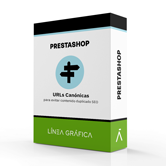
(112)
-30%
COMPATIBLITY
Prestashop 1.5.0.0 - 8.1
VERSION
1.3.7. Published on 05/10/2023
FEATURES
- Default canonical url added to all product, category, CMS, manufacturer and supplier pages
- Set the domain for the default canonical urls (to avoid duplicate content between domains)
- Set the protocol for the default canonical urls (to avoid duplicate content between http and https)
- Ignore a list of parameters in the default canonical urls (to avoid duplicate content due to parameters)
- Set custom canonical URLs for the product, category, CMS, manufacturer and supplier pages of your choice
- Set default or custom canonical url for the homepage
- Option to add the canonical URL in the HTTP headers of the page (for web browsers)
- Compatible with multistore*
- Allows hreflang tags to be added to all pages of the site
- Possibility to include regions as a differentiator (en-GB)
- Ability to add the default “x-default” label
*Please note that the configuration of custom canonicals for products, categories, etc. is not compatible with multistore.
HOW DOES IT WORK?
About canonical URLs
- Canonical URLs are used to avoid duplicate content and indicate to search engines which page is the “original” page. This is just an indication added into the code of a page to tell search engines that this page is not the main page and that the original content is located in another page.
- If you have several similar versions of the same content accessible through multiple URLs and you don’t use canonical URLs, search engines would penalize your SEO because these pages would be considered as duplicate content.
- But if you use canonical URLs, the pages that used to be considered as “duplicate content” (different urls with the same content) would be considered now as one and same page by search engines (they are linked to the canonical URL).
How does it work?
- The module automatically adds a default canonical url to all your product, category, CMS pages only. By default, the module uses the current url of the page as the default canonical url.
- Use the general configuration to apply general changes to all your default canonical urls. You can change automatically the domain (if you have duplicate content between domains), the protocol (if you have duplicate content between http and https) or to remove parameters (if you have duplicate content due to urls with parameters) in the default canonical urls.
- If you want to set a custom canonical URL for a specific product, category, CMS, manufacturer or supplier page, then go to the configuration of this page, choose the option “Custom URL” and write the custom canonical url of your choice.
General configuration (default canonical urls)
The module allows you to set general rules that apply to all your default canonical urls
- You can set the main domain name (if you use several domains with the same content) to tell search engines which domain is the main one. Ex: if you set for example www.domain2.com as the main domain, the canonical URL of the page www.domain.com/product.com will be www.domain2.com/product.com
- You can force to add “http” or “https” before the canonical URL (to avoid duplicate between the http and https version of a website). Ex: if you choose to force https for the canonical URL, the canonical URL of the page www.domain.com/product.com will be https://www.domain.com/product.com
- You can add a list of parameters to ignore in the canonical URL (if you have several URLs for the same page) Ex: if you add in the list for example this list of parameters (live_configurator_token, id_employee, id_shop), the canonical URL of the page www.domain.com/product.html?live_configurator_token=123&id_employee=1&id_shop=1 will be www.domain.com/product.html
- You can also add the canonical URL into the HTTP header of the page (this part is visible only by web browsers)
Custom canonical URL
The module also allows you to set a specific canonical URL for the homepage, product, category, CMS, manufacturer and supplier pages you want.
- To do it, you just need to edit a product, category, CMS, manufacturer or supplier of your shop, the module automatically adds a new section of the configuration of these page.
- On the configuration of this page, you just need to select the option “Custom URL” and write the custom canonical URL you want, you can set a different URL for each language of your shop (multilingual shop)
Tags hreflang
The module allows you to add the hreflang tag to let Google know which languages or regions each page is targeted at. This will improve your SEO, avoid duplicate content and improve the user experience. It will also allow you to add the default “x-default” tag for users from countries for which the language is not configured on your website or for those who do not have the language configured in the browser. Essential for international SEO.










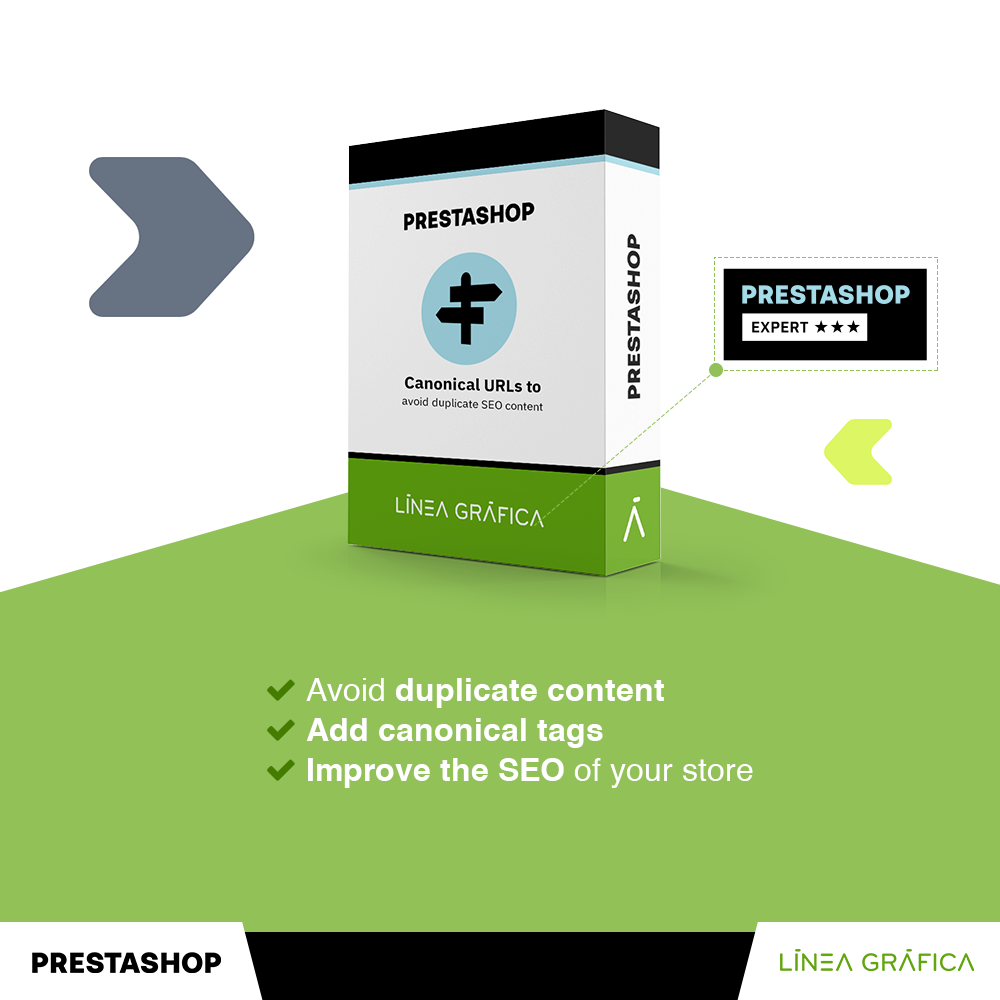
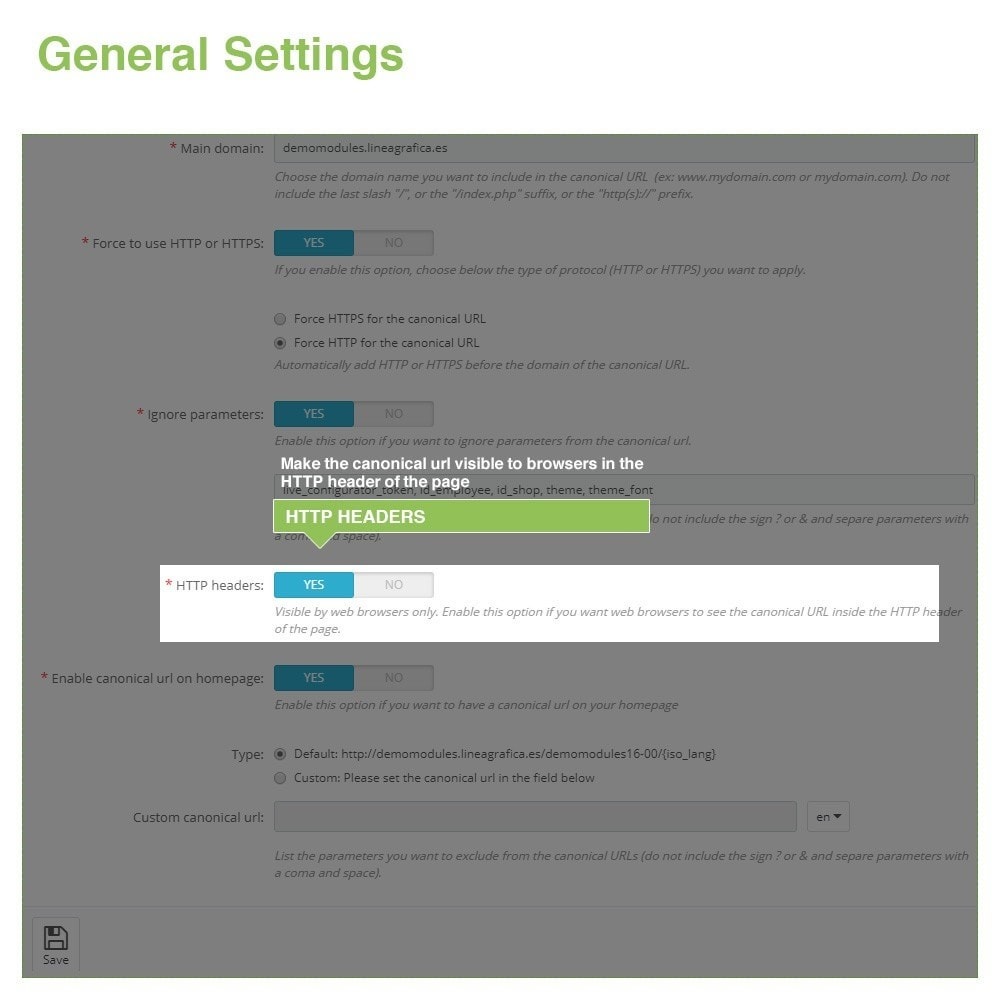
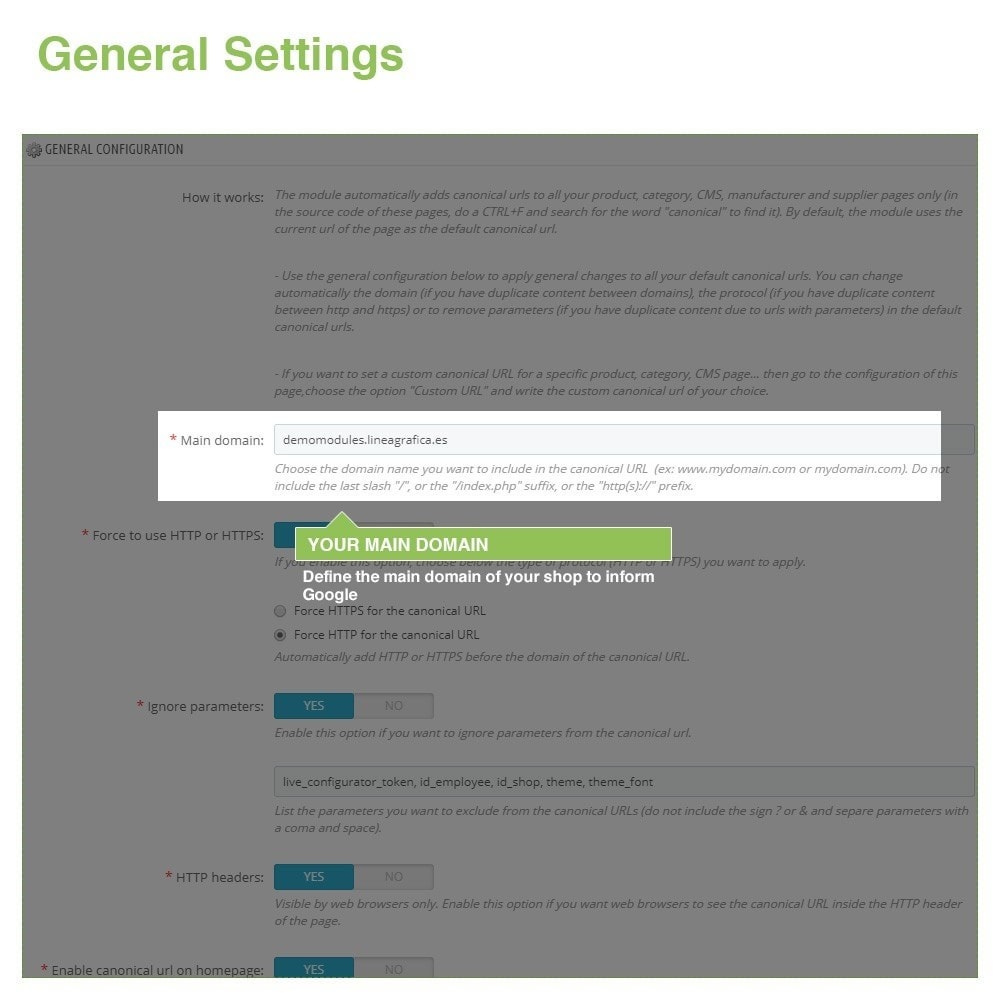
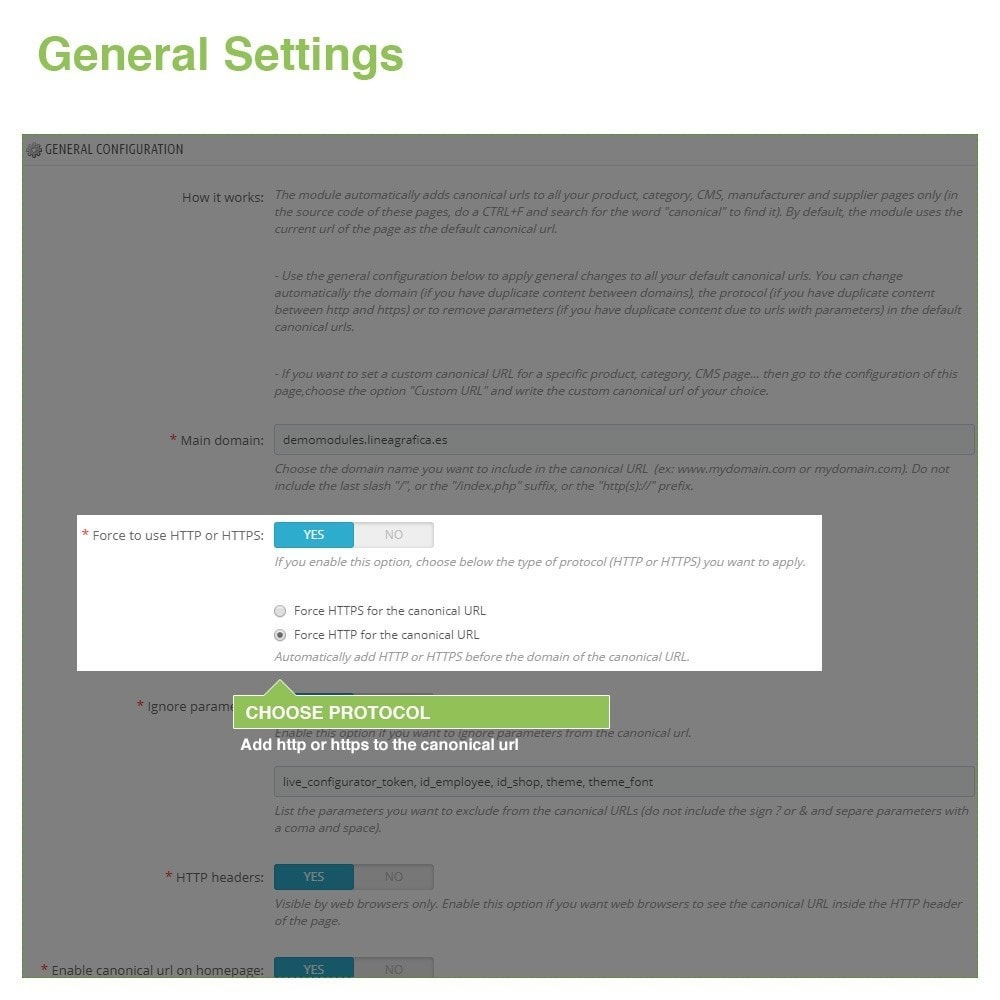
 Linea Gráfica
Linea Gráfica